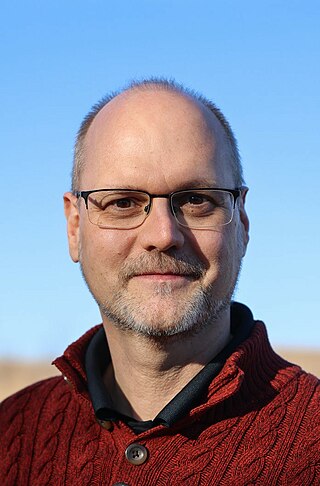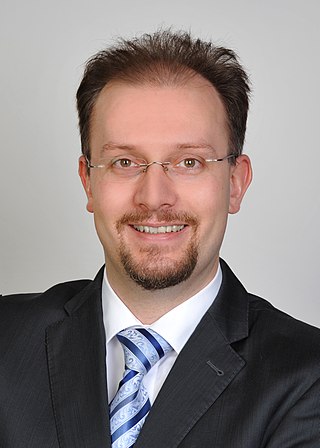Knowledge representation and reasoning is the field of artificial intelligence (AI) dedicated to representing information about the world in a form that a computer system can use to solve complex tasks such as diagnosing a medical condition or having a dialog in a natural language. Knowledge representation incorporates findings from psychology about how humans solve problems and represent knowledge, in order to design formalisms that will make complex systems easier to design and build. Knowledge representation and reasoning also incorporates findings from logic to automate various kinds of reasoning.

The Semantic Web, sometimes known as Web 3.0, is an extension of the World Wide Web through standards set by the World Wide Web Consortium (W3C). The goal of the Semantic Web is to make Internet data machine-readable.
In information science, an ontology encompasses a representation, formal naming, and definitions of the categories, properties, and relations between the concepts, data, or entities that pertain to one, many, or all domains of discourse. More simply, an ontology is a way of showing the properties of a subject area and how they are related, by defining a set of terms and relational expressions that represent the entities in that subject area. The field which studies ontologies so conceived is sometimes referred to as applied ontology.
Description logics (DL) are a family of formal knowledge representation languages. Many DLs are more expressive than propositional logic but less expressive than first-order logic. In contrast to the latter, the core reasoning problems for DLs are (usually) decidable, and efficient decision procedures have been designed and implemented for these problems. There are general, spatial, temporal, spatiotemporal, and fuzzy description logics, and each description logic features a different balance between expressive power and reasoning complexity by supporting different sets of mathematical constructors.
The Web Ontology Language (OWL) is a family of knowledge representation languages for authoring ontologies. Ontologies are a formal way to describe taxonomies and classification networks, essentially defining the structure of knowledge for various domains: the nouns representing classes of objects and the verbs representing relations between the objects.
E is a high-performance theorem prover for full first-order logic with equality. It is based on the equational superposition calculus and uses a purely equational paradigm. It has been integrated into other theorem provers and it has been among the best-placed systems in several theorem proving competitions. E is developed by Stephan Schulz, originally in the Automated Reasoning Group at TU Munich, now at Baden-Württemberg Cooperative State University Stuttgart.
Patrick John Hayes FAAAI is a British computer scientist who lives and works in the United States. As of March 2006, he is a senior research scientist at the Institute for Human and Machine Cognition in Pensacola, Florida.

Deborah Louise McGuinness is an American computer scientist and researcher at Rensselaer Polytechnic Institute (RPI). She is a professor of Computer, Cognitive and Web Sciences, Industrial and Systems Engineering, and an endowed chair in the Tetherless World Constellation, a multidisciplinary research institution within RPI that focuses on the study of theories, methods and applications of the World Wide Web. Her fields of expertise include interdisciplinary data integration, artificial intelligence, specifically in knowledge representation and reasoning, description logics, the semantic web, explanation, and trust.
Franz Baader is a German computer scientist at Dresden University of Technology.
The Semantic Web Rule Language (SWRL) is a proposed language for the Semantic Web that can be used to express rules as well as logic, combining OWL DL or OWL Lite with a subset of the Rule Markup Language.

Ian Robert Horrocks is a professor of computer science at the University of Oxford in the UK and a Fellow of Oriel College, Oxford. His research focuses on knowledge representation and reasoning, particularly ontology languages, description logic and optimised tableaux decision procedures.

Alan L. Rector is a Professor of Medical Informatics in the Department of Computer Science at the University of Manchester in the UK.
Frames are an artificial intelligence data structure used to divide knowledge into substructures by representing "stereotyped situations". They were proposed by Marvin Minsky in his 1974 article "A Framework for Representing Knowledge". Frames are the primary data structure used in artificial intelligence frame languages; they are stored as ontologies of sets.
A semantic reasoner, reasoning engine, rules engine, or simply a reasoner, is a piece of software able to infer logical consequences from a set of asserted facts or axioms. The notion of a semantic reasoner generalizes that of an inference engine, by providing a richer set of mechanisms to work with. The inference rules are commonly specified by means of an ontology language, and often a description logic language. Many reasoners use first-order predicate logic to perform reasoning; inference commonly proceeds by forward chaining and backward chaining. There are also examples of probabilistic reasoners, including non-axiomatic reasoning systems, and probabilistic logic networks.

In computer science, information science and systems engineering, ontology engineering is a field which studies the methods and methodologies for building ontologies, which encompasses a representation, formal naming and definition of the categories, properties and relations between the concepts, data and entities of a given domain of interest. In a broader sense, this field also includes a knowledge construction of the domain using formal ontology representations such as OWL/RDF. A large-scale representation of abstract concepts such as actions, time, physical objects and beliefs would be an example of ontological engineering. Ontology engineering is one of the areas of applied ontology, and can be seen as an application of philosophical ontology. Core ideas and objectives of ontology engineering are also central in conceptual modeling.
The International Semantic Web Conference (ISWC) is a series of academic conferences and the premier international forum for the Semantic Web, Linked Data and Knowledge Graph Community. Here, scientists, industry specialists, and practitioners meet to discuss the future of practical, scalable, user-friendly, and game changing solutions. Its proceedings are published in the Lecture Notes in Computer Science by Springer-Verlag.

Pascal Hitzler is a German American computer scientist specializing in Semantic Web and Artificial Intelligence. He is endowed Lloyd T. Smith Creativity in Engineering Chair, one of the Directors of the Institute for Digital Agriculture and Advanced Analytics (ID3A) and Director of the Center for Artificial Intelligence and Data Science (CAIDS) at Kansas State University, and the founding Editor-in-Chief of the Semantic Web journal and the IOS Press book series Studies on the Semantic Web.
Sheila McIlraith is a Canadian computer scientist specializing in Artificial Intelligence (AI). She is a Professor in the Department of Computer Science, University of Toronto. She is a Canada CIFAR AI Chair, a faculty member of the Vector Institute, and Associate Director and Research Lead of the Schwartz Reisman Institute for Technology and Society.

Jens Lehmann is a computer scientist, who works with knowledge graphs and artificial intelligence. He is a principal scientist at Amazon, an honorary professor at TU Dresden and a fellow of European Laboratory for Learning and Intelligent Systems. Formerly, he was a full professor at the University of Bonn, Germany and lead scientist for Conversational AI and Knowledge Graphs at Fraunhofer IAIS.
Terry R. Payne is a computer scientist and artificial intelligence researcher at the University of Liverpool. He works on the use of ontologies by Software Agents within decentralised environments. He is best known for his work on Semantic Web Services and in particular for his work on OWL-S.







